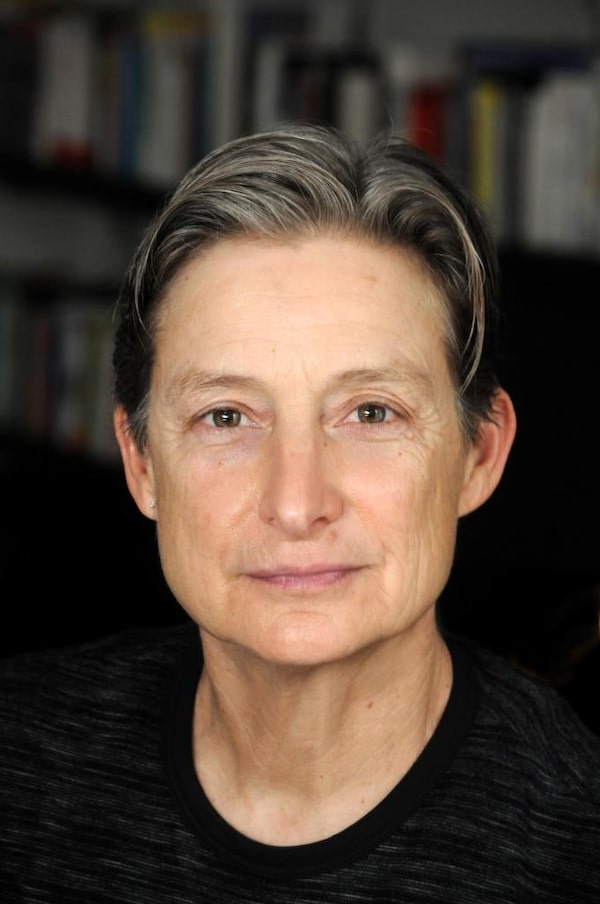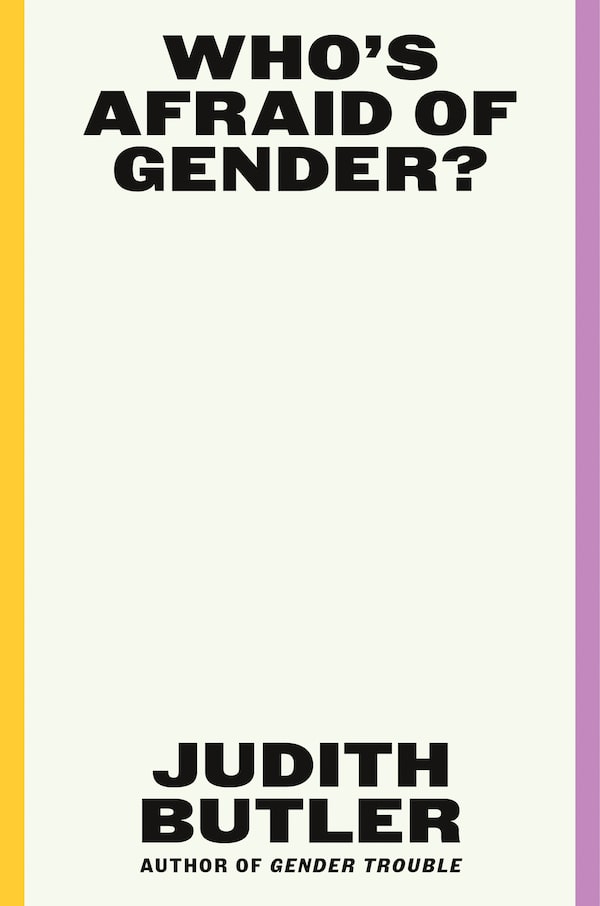
Author Judith Butler.Handout
When Judith Butler published their first book, Gender Trouble, in 1990 – in which they put forth the theory of gender performativity with which they’re still associated – the academic’s hopes were modest. Perhaps it would lead to a better job, or even tenure. Butler certainly didn’t envision becoming the most recognizable name in the then-nascent field of gender studies. Or that gender would become the hot-button, culture-war-inciting issue it is today.
Book recommendations from Globe staff and readers
Into that volatile new reality comes Who’s Afraid of Gender?, their most accessible book yet. In answering its titular question, Butler looks at anti-gender rhetoric coming from authoritarian-leaning governments as well as from so-called “trans-exclusionary” feminists such as J. K. Rowling, and seeks to show how it all affects issues ranging from reproductive justice to human rights.
Butler, who lives and teaches in Berkeley, Calif., spoke to The Globe from Paris.
So who is afraid of gender. Or maybe it’s more relevant to ask who or what is making people feel afraid?
The most powerful discourse against gender has come from Christian right-wing networks. And of course, we see anti-gender discourse in certain kinds of Muslim regions and in Orthodox Judaism.
We can also find secular origins. People who think they’re standing for science when they say gender is fake or ideological or nonsense. But for many, especially on the religious right, gender is a term that involves feminism, gay and lesbian rights, sex education in schools, graphic queer trans imagery or books about queer trans lives.
Many fear that whatever gender is going to destroy their families or nations or communities of belonging. And that’s a very powerful fear, especially if politicians are telling you that we need to get it out of schools, to close down educational curricula that talk about what boys and girls can become, or to introduce the idea of gay and lesbian sexuality as part of human sexuality rather than as something pathological.

Handout
So a lot of this fear is stoked and cynical – rooted in political manipulation.
Take Giorgia Meloni in Italy – who comes from a right-wing fascist background. Many now accept her as a centrist politician, but some of what she says about gender is meant to stoke hysteria. She’s telling people that if this gender movement is accepted, they’ll take your sex away. You won’t be able to be male or female any more. You won’t be able to be called mother or father any more.
Now, that’s not on anybody’s agenda in the feminist, gay, lesbian, queer, non-binary, bisexual, trans movements. They’re making much smaller claims. Like: I’d like to be a mother or father too. Or I want to parent with my friend, or outside a conjugal relationship. My family isn’t traditional, but it works. It’s a loving family.
Or, I want to be able to change my sex. We can have debates about that. But if somebody wants that, it doesn’t take somebody else’s rights away. Those people stay sexed the way they are. They remain mothers and fathers, so it’s a patently false kind of incitation.
Authoritarianism stokes this kind of fear, so that people run to the state for protection against this horrible threat to their family, their sex, their way of life, their nation. And the state is then able to augment its power, to look like the great protector. But in fact it’s abandoning all kinds of people and stoking unnecessary fear in a lot of others.
There are real stakes in all this. Violence, and also laws that protect freedoms are on the line. But if the anti-gender crowd aren’t reading books like yours, on what terms, or turf, is engagement with them meaningful, or even possible?
Maybe we have to do a better job of naming what’s causing fear, and perhaps offering a counterimaginary. We’re not about destroying people’s lives and loves or their sexed identity. We’re looking to live with greater freedom, equality and justice.
I don’t know how to make that appealing and sexy. I’m an aging academic. But I do think we should be rallying artists to produce a vision of the world we want to live in that is more compelling than the fantasy that we’re being destroyed by progressive social movements.
You’ve been writing about this stuff for many decades. How has the world changed as you’ve continued to straddle public and academic worlds?
When I wrote Gender Trouble in the late 1980s I was part of the feminist world, and gay and lesbian rights. My book got taken up by something called queer theory in the first phase of its North Atlantic life. I was involved in academic debates, and debates between social movements. I wasn’t thinking, “This book is going to make a great splash.” I didn’t have that ambition, so it took me by surprise. And I didn’t know how to handle the public gaze that was sometimes on me, given that I preferred a quiet academic life.
But I learned a great deal as the book was getting translated into more than 20 languages. I sometimes visited the places where it had been translated, like Argentina, Chile, Serbia, Turkey and Kyrgyzstan, and was suddenly exposed to whole worlds that I didn’t know about. And the way in which gender was received, and resisted, became very interesting to me.
In more recent years, people who teach gender at universities in Brazil and in Latin America have been attacked. Sometimes I’ve been named as a person who represents it, even though it’s a vast field of study, and I don’t represent its current form. There are other fabulous scholars leading the way now. I’m something of an ancient character in this story.
When I was physically threatened and burnt in effigy in Brazil I was shocked. Why were they screaming about pedophilia? Why were they making antisemitic pictures of me with horns? So I started to confer with colleagues there and elsewhere to better understand what this movement was.
The book is a public intervention. It doesn’t try to revise my early theory or put forth a new theory or explain once and for all what gender performativity means. But it is interested in what this movement is and how it disfigures the field of gender studies..
Beyond these recent dark trends, surely you’ve seen some positive generational shifts in people’s attitudes to gender?
More and more trans people are becoming well-known, admired and respected for their courage, beauty and ways of inhabiting their desire and their body. And there’s a backlash against that, like: Let’s not normalize this. But it’s already out of control.
And a lot of young people are experimenting with gender and trying to find new language, to figure out how they want to be recognized and named, working with pronouns and the rest.
But there are other young people who are angry about this. So I think we really should be actively involved in educational and counselling efforts in schools. That educational setting is one in which we’re able to say, look, this person is non-binary, wants to be referred to as “they.” And that doesn’t hurt you.
This interview has been edited and condensed.